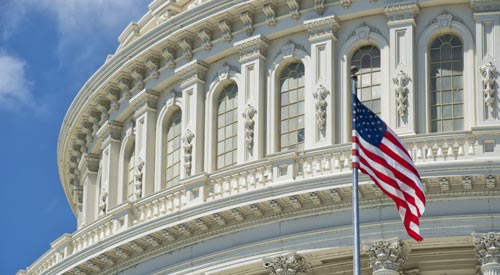A Strategic Human Rights Agenda for the Tillerson State Department
Foreign Policy: During his Senate confirmation hearings, Secretary of State Rex Tillerson rightly identified China, Russia, Iran, North Korea, and militant Islamism as his priorities for the threats they pose to American interests. He also declared that “supporting human rights in our foreign policy is a key component of clarifying to a watching world what America stands for.” While Tillerson did not explicitly connect that general conviction with his specific statements on his priority countries, it was a promising insight. Bringing human rights back to the forefront of America’s diplomatic agenda offers a rare opportunity to regain the initiative and strategic advantage.
One regrettable legacy of the Obama era is the relative neglect of human rights and democracy promotion in American foreign policy. Arriving in office with a reflexive, ideological rejection of anything associated with its predecessors in the Bush Administration, the Obama team ostentatiously marginalized human rights in its efforts to pursue a “re-set” with Russia, an economic partnership with China, a rapprochement with Iran, and “strategic patience” with North Korea. Setting aside the relative failures of those policy initiatives on substantive grounds, the abandonment of human rights was a missed opportunity, especially as reformers and dissidents in nations such as Iran, Russia, China, Cuba, Egypt, Vietnam, and Saudi Arabia implored the Administration for support that either arrived too little, too late, or not at all. The Obama Administration did make some gestures towards recalibrating this in its second term, especially with the appointments of principled professionals like Assistant Secretary of State for Democracy, Rights, and Labor (DRL) Tom Malinowski and Ambassador at Large for International Religious Freedom David Saperstein.
Tags
Share
Top Stories
- When May a Robot Kill? New Pentagon Policy Tries to Clarify
- Defense Logistics Agency to Shift Warehouse Management to Commercial Software
- Homelessness Among Veterans Has Been Cut in Half since 2010, VA Says
- Defense Industry Decries Possible GOP-led Spending Cuts
- Let’s Make It Easier to Share Top-Secret Data With Allies, Intel Leader Says
- Gillibrand Ditches Military-Services Style Cyber Academy Idea for DOD Scholarship Program in NDAA
- It’s Finally Here: Pentagon Releases Plan To Keep Hackers Out Of Its Networks
- DISA’s Plea to Industry: Bring Us Battlefield-Ready Tech
- How Elon Musk’s Twitter Buy Raises Cybersecurity Risks For The Rest Of Us
- Why Defense Budgets Will Stay High After the Ukraine War
- Contractors’ Reluctance to Work With the Pentagon on Cybersecurity Is Leaving Vulnerabilities, DOD Official Says
- Defense Department Health Plan Cuts Its Pharmacy Network by Nearly 15,000 Outlets
- DISA’s Sweeping New Plan Takes Aim at Data Silos, Mistagged Info
- Inside the US Army’s ‘warfighting’ cloud
- Army Updates Cyber Training After Some Graduates Weren’t Ready for Their Jobs
- The US Weighs Escalation Risk As Ukraine Asks for Longer-range Missiles
i360Gov Newsletters
The most significant government policy, business, and technology news and analysis delivered to your inbox.
Subscribe NowTrending
- DISA’s Plea to Industry: Bring Us Battlefield-Ready Tech
- VA Systems are Vulnerable to Cyber Intrusions Due to Lack of Effective Oversight, Report Says
- Here's What Can Happen When the Average Clearance Holder Mishandles Classified Information
- How Elon Musk’s Twitter Buy Raises Cybersecurity Risks For The Rest Of Us
- TSA Collaborates with European Security, Manufacturers To Upgrade Security Tech
- Defense Department Health Plan Cuts Its Pharmacy Network by Nearly 15,000 Outlets
- It’s Finally Here: Pentagon Releases Plan To Keep Hackers Out Of Its Networks
- Contractors’ Reluctance to Work With the Pentagon on Cybersecurity Is Leaving Vulnerabilities, DOD Official Says


















